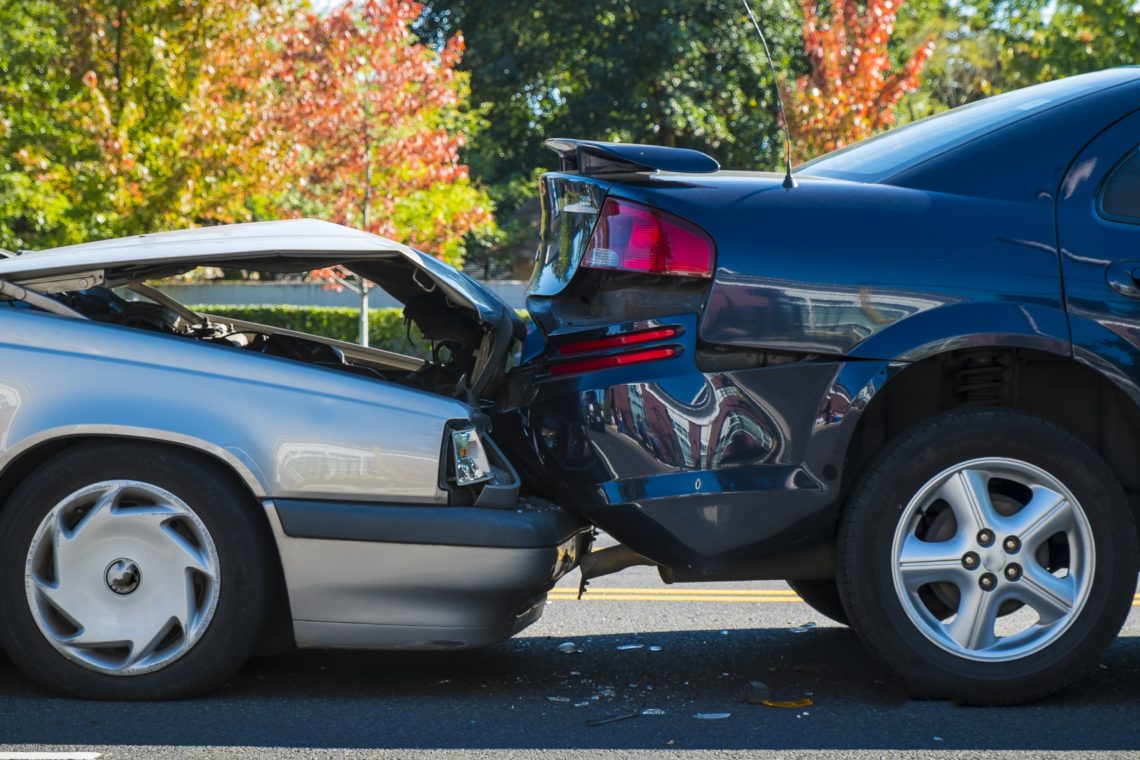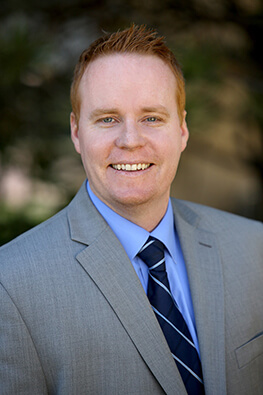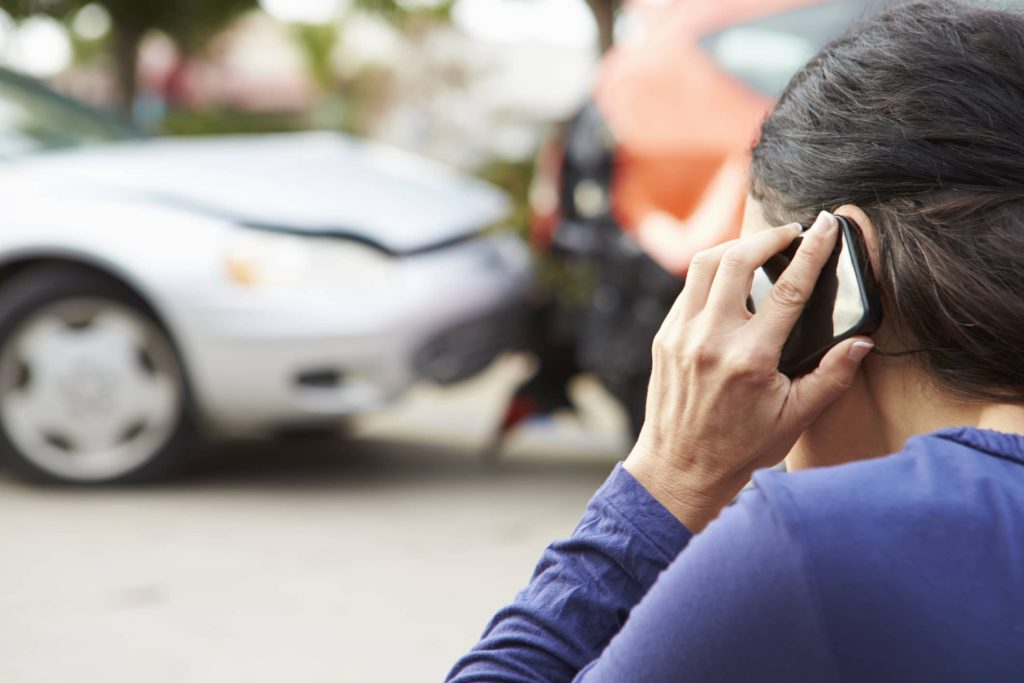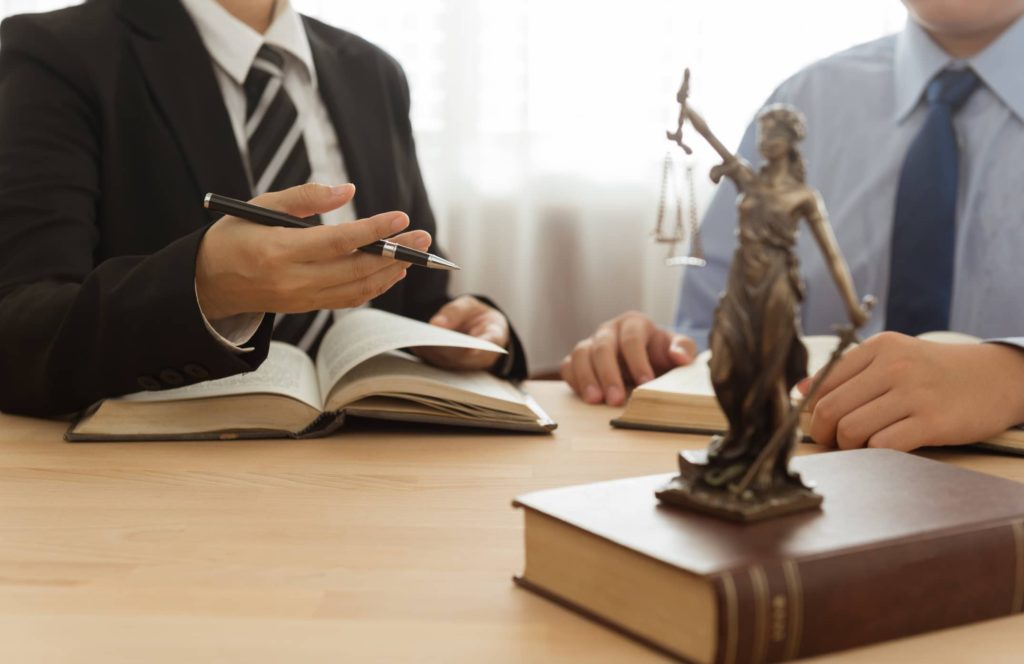
You’re sitting at a red light when the vehicle behind you rams into you, crumpling your car’s back end. It’s not your fault that you got into this accident, you were stopped and following all of the rules of the road, but what do you do?
It’s common for victims to forget about what they should do after they’ve been in a car accident. That’s why it’s important to have a game plan before you’re faced with a damaged car on the side of the road. Hopefully, you’ll never have to use this plan, but it’s important to be prepared for any situation.
What to Do in a Car Accident That Wasn’t Your Fault
There are six steps that you should keep in mind when you’re in a car accident that’s not your fault. Making sure to take your time and understand each one now will help you when the adrenaline is pumping.
Step 1: Stay Safe
Your first concern after getting in an accident is to ensure your safety. No matter how small or minor the impact felt, do a complete check of yourself to make sure that you can still move and you don’t feel any pain. If you are struggling to move any body part, or there is sharp pain anywhere in your body, especially in your neck or back, stay in the car and wait for medical assistance. If you have sustained a head or neck injury, walking or moving can lead to further complications.
Check on your passengers. If you have any children or passengers with you, make sure that they are okay. Again, if anyone in your car is feeling excessive pain, is unable to move parts of their body, or is hurt in their head or back, keep them still and wait for help.
You don’t need more people to hit you, so make sure they can see your car. Turn off your engine if it is still running, and turn on your hazard lights. Look around your vehicle and assess your location. It is not safe to leave your car when you’re on a busy road or highway. Wait for help to arrive and do not get out of the car.
Step 2: Call the Police
Some people worry about whether it’s necessary to call the police and will even try to tell victims of accidents that they shouldn’t call the police. Rest assured, if you get into a car accident, you should always call the police.
- If you’re ever debating if you should call, there are two things to look for. If you see either of them, automatically make a call.
- If there is any personal injury to you or your passengers.
If there is property damage (including damage to your car) exceeding $1,000. This doesn’t take much. Depending on the make and model of your car, a small fender bender can easily exceed this amount.
Step 3: Gather Information
When you are in a car accident that’s not your fault, you should gather information from the driver that hit you, any witnesses to the accident, and information about the damage to your car.
As you gather personal information, you should get the name and address of every person in the other vehicle. The driver of the vehicle should give you their driver’s license number, insurance information, and license plate number. Depending on your circumstances, it might be easier to take multiple pictures on your phone, rather than trying to find a pen and paper to jot everything down.
Witnesses should provide their name, address, and any contact information they are willing to share (like a phone number or email). A reliable witness is powerful in both a court of law and for insurance claims. And it is always better if there are multiple witnesses.
Gather information about the accident and the damage done. Get out your phone and take more pictures than you think is necessary, from different angles and distances. There’s no such thing as having too much evidence.
Step 4: Seek Medical Attention Immediately
Not only is it a good medical practice to get treated immediately to avoid any potential complications with your health, but it is also helpful for fighting insurance companies. Frequently, insurance companies will try to claim that you were not injured in the accident or that the injuries were not severe enough to elicit a trip to the hospital or doctor’s office immediately after the accident.
If you feel hurt, seek medical attention right away.
How Are Your Medical Bills Paid After a Car Accident?
Even if you are the victim of a car accident that wasn’t your fault, you are responsible for your medical bills due to the incident. While you might not be at fault for causing the injuries, the bills are still your legal obligation. Sometimes it can take months to receive a reimbursement from the person liable, but that does not reduce or remove your accountability to pay those bills.
Depending on the insurance that you and the person who hit you have, situations can change. With a mix of personal injury protection insurance and healthcare insurance, some costs should be covered. There are times when insurances do not cover the full cost of healthcare, even though you are not at fault for the accident or the injuries caused.
To navigate the complex world of healthcare, insurance claims, and legal responsibilities, an experienced car accident injury lawyer can be key. They know how to track all of your medical expenses and assess how much money a liable party may owe. They’ll focus not just on medical services, but on medically-related items that can lead to enormous expenses.
Related Article:What is a Car Accident Lawyer and Why Do I Need One?
Step 5: Contact Your Insurance Agency
Create a no-fault claim with your own insurance company. Your insurance company should pay damages for the injuries you suffered. This claim should be made as soon as possible. Do not wait to file a claim. The longer you wait between the accident and filing a claim, the more complicated the process can become.
While a no-fault claim can be helpful to speed up the process of dealing with insurance claims and compensation, there can be some downsides. With no-fault claims, you aren’t guaranteed a settlement, and you’re limited in the kinds of compensation you can collect. Making the decision to file a no-fault claim or going for a more aggressive route like a lawsuit against the at-fault driver can be pivotal. If your injuries and damages are small, a no-fault claim might be your best option. However, if you are dealing with extensive injuries over a long period, seeking “pain and suffering” damages might be a better option.
Related Article: How to Claim Personal Injury From a Car Accident
Step 6: Speak with Your Lawyer
When you’ve been in a car accident and are at no-fault, you are thrown into a complicated web of legal, medical, and financial decisions. You shouldn’t have to navigate it all alone. An attorney can make all the difference. Have them evaluate your case and claim to see what the best choices are for you.
How Long After an Accident Can You Claim Injury?
If you are filing a lawsuit in Utah, you can wait up to three years (if the accident involved property damage) or four years (if the accident involved personal injury) to file.
When Should You Hire an Attorney for a Car Accident?
A simple fender bender typically doesn’t need a lawyer, but it can be difficult to know when you should get an attorney for a car accident. Here are some of the best times for you to seek legal representation:
- The accident caused a serious injury to you or a passenger.
- You and/or your passengers were admitted to a hospital because of the injuries you received during the accident.
- Your injuries left you unable to work.
- You received a settlement offer from an insurance company that is too low.
- The accident involved multiple drivers and parties.
- The party at fault for the accident was uninsured or underinsured.
- The insurance company is blaming you.
- The insurance company doesn’t take your injury as seriously as you.
Have a Car Accident Attorney Review Your Accident Claim Today
Contact Ipson Law today to find out what your options are, and get the compensation process going. You can come in for a free consultation and meet with an attorney who specializes in car accidents and personal injury cases. We help you get just compensation so that you don’t have to deal with the burden of medical bills and lost wages. Working with an attorney at Ipson Law gives you peace of mind knowing that you have an expert working for you.

Michael is an attorney who started Ipson Law because of his passion for personal injury law. He graduated with a Juris Doctorate degree from McGeorge School of Law in Sacramento, CA. Learn more about Michael on our about us page, and contact Ipson Law to find out how we can help you.



